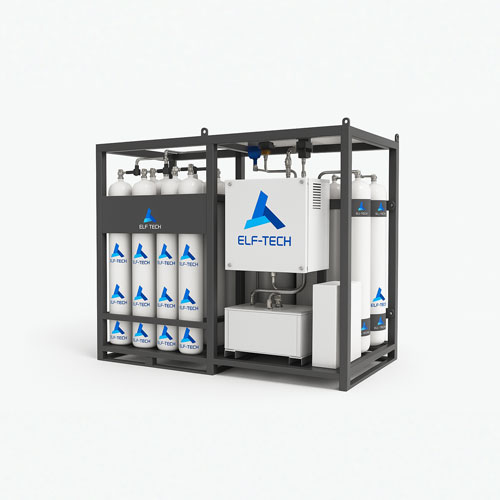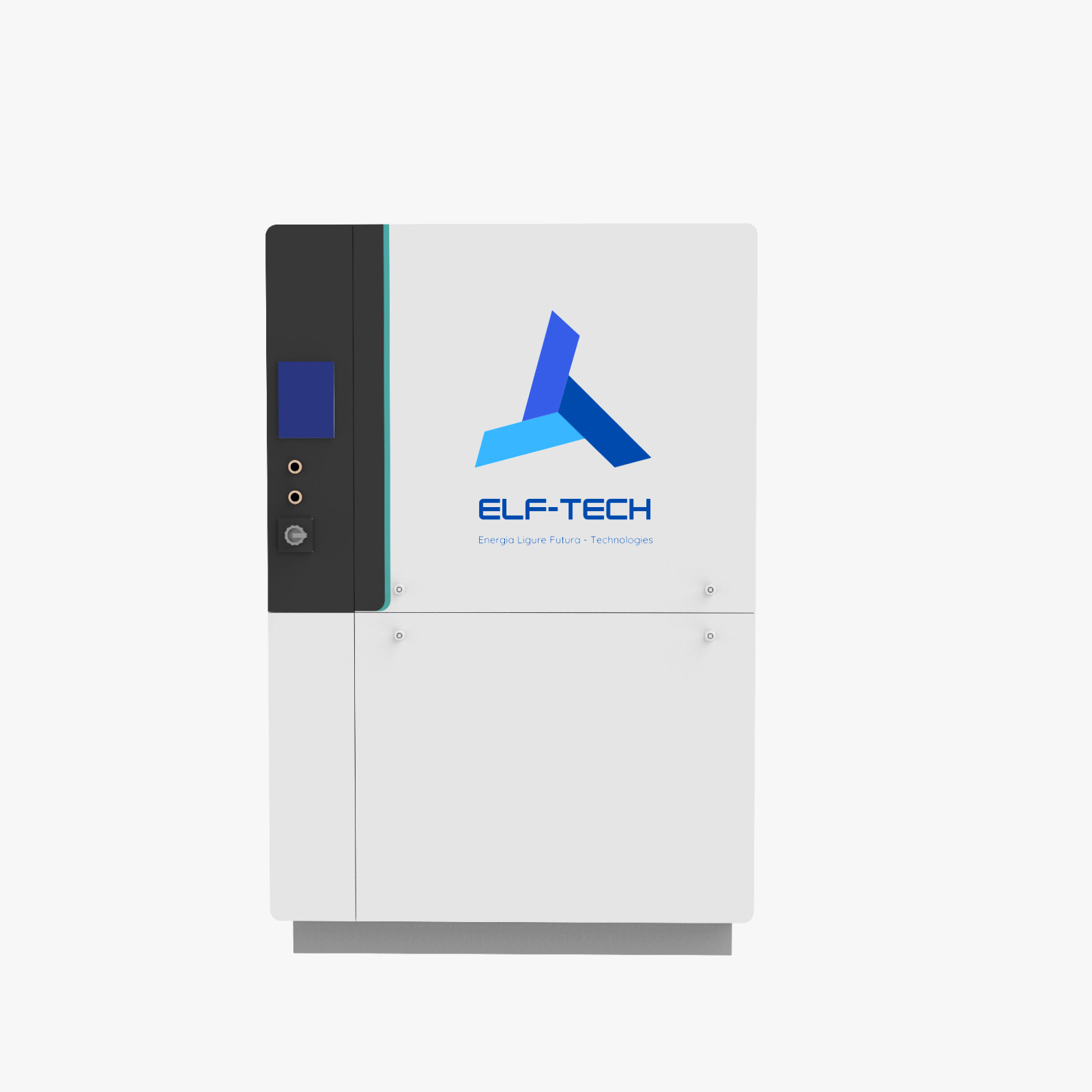The hydrogen energy storage system for residential use allows homes to achieve year-round energy self-sufficiency, even in winter months, by harnessing solar energy. Excess energy is used to produce hydrogen through electrolysis, which is then stored and later used to generate electricity and heat with a fuel cell. The system is scalable, reduces costs up to 60% compared to lithium batteries, and maximizes self-consumption up to 95%. It can integrate with home heating by recovering residual heat from the process. It includes modules for electrolysis, batteries, inverters, a deionized water system, and hydrogen tanks, suitable for both indoor and outdoor installation.


Excess solar energy from the rooftop photovoltaic system powers an electrolyzer. The electrolyzer splits water into hydrogen through electrolysis.
The hydrogen produced is stored for future use, serving as an energy reserve for low-sunlight periods like cloudy days or winter months.
During periods of low solar production, the system uses the stored hydrogen to generate electricity and heat via a fuel cell. Residual heat from the process is captured and can be used for home heating, further reducing energy costs.


It provides 340 kWh of electricity and 270 kWh of heat, expandable up to 1,620 kWh of electricity and 1,350 kWh of heat. It maximizes use of self-produced solar energy up to 90–95%, reducing grid dependency.
It stores excess solar energy from summer for use during winter, ensuring a consistent energy supply year-round.
It integrates with home heating systems, using generated heat to improve overall efficiency.
It can reduce storage costs up to 60% per kWh compared to lithium-based systems. It offers a sustainable, future-proof energy solution, cutting carbon footprint and increasing independence from traditional energy sources.

Our products are designed for those who wish to make their homes or small businesses energy-independent and sustainable. They are ideal for those who produce solar energy and want to maximize its use throughout the year. They are especially beneficial in areas with harsh winters or limited grid access, also reducing bills and environmental impact. The system suits both new buildings and renovations, perfect for those looking for an advanced but reliable technology. It’s especially for people who believe in a greener future and want to invest today in an autonomous, efficient project.